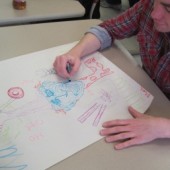
Abstract: This study sought to determine the influence of environmentally themed higher education courses upon students’ self-perceptions of their environmental literacy. Past research has suggested mixed conclusions about the objectives, approaches, and impacts of environmental and sustainability education in higher education. This study assessed environmental literacy and the influence of pedagogical perspective and instructor emphasis in environmentally themed higher education courses. Using the Hollweg et al. (2011) framework for environmental literacy, the study assessed students’ self-perceptions of their environmental literacy in a pre- and post-test format. Data were analyzed using a paired samples t-test and one-way ANOVA with a Tukey HSD post-hoc test. The results of the study showed that environmentally themed higher education courses are having a significant influence on students’ self-perceptions of their environmental literacy. However, instructors seemed to emphasize behavior least of the four aspects of environmental literacy. These findings suggest that environmentally themed courses are having a strong impact, yet further integration of environmental education principles may be meaningful. This study clarifies the impact of environmentally themed higher education courses. The distinction between pedagogical perspectives delineates new understandings of the differences in environmental literacy change. This study serves as a ground for future research to build the implementation of environmental education in higher education.
Continue Reading
A personal reflection, from the professors’ perspective, of an arts integrated learning tool created to teach systems concepts in college level environmental studies and sustainability courses.
Continue Reading
The field study (or short-term study abroad) creates a successful hybrid of study abroad and field research. These short-term educational adventures (edu-ventures) give environmental or sustainability students opportunities to gain practical knowledge while traveling domestically or overseas. In addition, it presents the opportunity for both faculty and students to extend the traditional Boyer model of scholarship, a reputable professoriate model, by developing continuity. The field study fulfills the four pedagogical goals of the Boyer model: creating research opportunities (discovery); breaking down the silos of traditional academic departments (integration); acting as consultants on-site (application); and educating students beyond the faculty members’ expertise (teaching). In addition, these field studies fulfill a fifth goal: building relationships and transgressing time (continuity). The development of this Boyer Plus model from a field-study experience serves as a tremendous tool for colleges, universities and professors to build the opportunities and necessary pedagogical skills for both traditional and non-traditional students.
Continue Reading